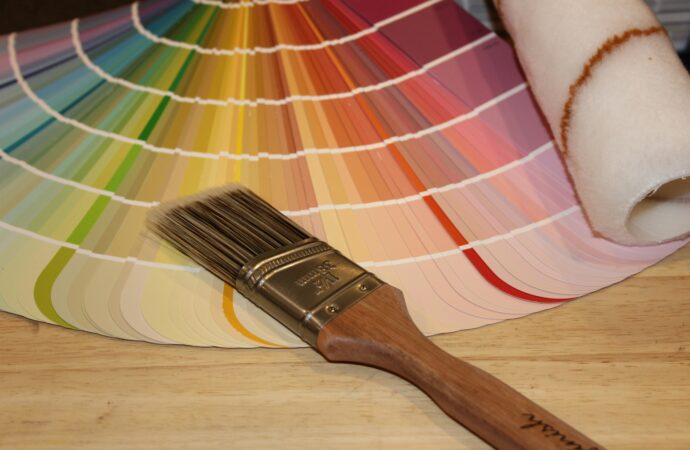I recently had the fun of participating in a choral performance premiering a new oratorio on the life of John Newton, the slave-trader turned Christian minister and writer of the beloved hymn, “Amazing Grace.” One never knows how something new will be received, but when the audience leapt to its feet in a wave at the end, it was clear that the breadth, depth, and meaning in the production had astounded its many listeners.
Why was it so moving? I could list many possibilities, but a note at the bottom of the concert’s program provides one insight. It noted that no part of the creation or production of the concert had used AI. In other words, human creativity was on full display.
Human creativity in the arts was in decline long before AI arrived on the scene. As author Bernard Iddings Bell observed in the 1950s, how we amuse ourselves, particularly through the creative arts, is one way in which we can judge the well-being or temperature of a culture. Even at that time, Bell sadly noted that our artistic abilities have become receptive rather than creative – in other words, we passively ingest content to amuse ourselves rather than actively create it.
Bell listed five areas of amusement in which this was evident: music, decoration, drama, conversation, and athletics.
Although musical appreciation has increased, “we do not make nearly as much music today as our grandparents did,” Bell says. Why? Laziness is one possibility, he notes, while fears of inferiority and a lack of discipline are two others.
When it comes to decoration, Bell notes that instead of exercising creative ingenuity with what we have in our homes to beautify them, we instead rely on whatever “mass producers tell us is in the best taste.” (Hello Amazon, Walmart, and Target!) This results in a dearth of self-expression, he explains, noting, “It may or may not be good; but it is not ours, no matter how much we pay for it.”
Television and video have long been the favorite whipping boys of those who protest our tendency toward passive amusement, but Bell takes it to another level, noting how we’ve completely removed ourselves from any active dramatization. “We write or produce or act next to no plays ourselves; and most of us, and our children, would rather be caught dead than observed playing charades or reciting monologues,” he writes.
Conversation, Bell writes, is in a similar boat. Good conversation “involves dramatic give and take,” yet many of our conversations today involve largely monosyllabic answers, interspersed with continual checks of our handheld devices, the ultimate pacifier in uncomfortable social situations.
“The same misfortune has overtaken what used to be the greatest American amusement of them all, the art called athletics,” Bell writes. “We are not really a sporting people, not any more. We do not, most of us play games; we watch them.”
If you’re like me, you’re likely guilty of being a passive consumer of at least one of these forms of amusement. And granted, responding to amusement this way isn’t always wrong … but it is wrong if it’s the only way. Why? Because such an attitude demonstrates complacency, a willingness to be readily influenced, spoon-fed whatever the powers-that-be deem appropriate to put in our minds. And as we should all recognize, such a mindset can have disastrous results at far higher levels than life’s simple amusements.
So how do we combat this attitude from taking over our lives? As Bell implies, we do so by being active creators rather than passive receivers.
In music, being an active creator means learning to play an instrument or finding ways to lift our voices in song – with others or by ourselves. As Bell says, “much more enjoyment is gained by singing or playing oneself, even though one does it badly, than from hearing it done, however perfectly.”
In the field of decoration, looking around our houses with discerning eyes and observing the beauty in things that aren’t true decorations is one way to make our homes more welcoming. This can be as simple as gathering our most beautiful books and setting them around in becoming clusters on a coffee table, desk, or cabinet, or collecting items from nature – such as leaves and flowers – to create unique, non-consumerist touches on interior design.
And how about conversation? Is it really that hard to keep our phones out of sight when out in public, choosing to walk up and ask someone friendly questions rather than bury our discomfort in a device?
And why not produce our own drama? We can memorize poetry in our families, then spend time reciting to one another – with actions and feeling! Our children can write plays about the stories they’ve read in school, then perform them for us and other guests. Chances are those same children won’t remember the time you spent watching a Disney movie on the couch together as much as the laughter you had in dressing up and acting out a character from history or literature.
Finally, there’s nothing wrong with watching sports, but how will we really be good armchair umpires if we haven’t got in the game and experienced it firsthand? Besides, simple pick-up games of baseball, frisbee, or a round of shooting hoops will hone our skills, boost our spirits, and further our health.
Amusement isn’t all bad – in fact, the relaxation and joy it can bring are necessary to our flourishing as human beings. But in our amusement, are we receivers or creators? Choosing the latter path will likely do far more than provide high-quality entertainment; in fact, it will gird our souls to withstand the pressure to conform and be influenced by the questionable ideologies of our time.
This article was made possible by The Fred & Rheta Skelton Center for Cultural Renewal, a project of 1819 News.
Image credit: Unsplash
















Leave a Comment
Your email address will not be published. Required fields are marked with *